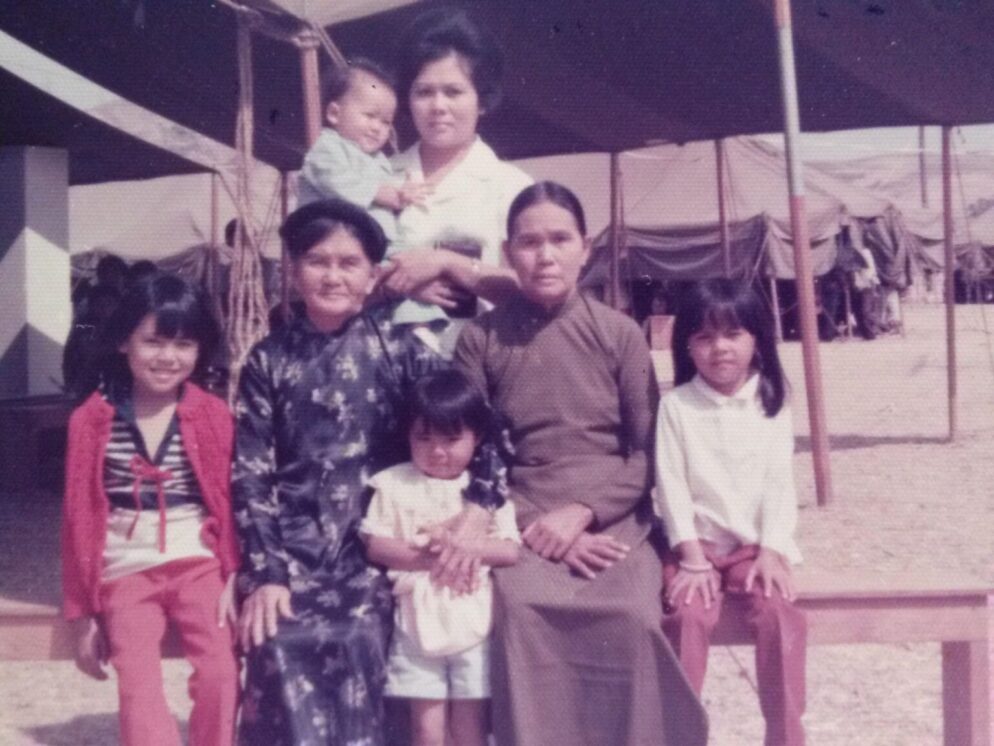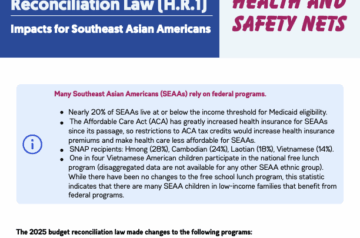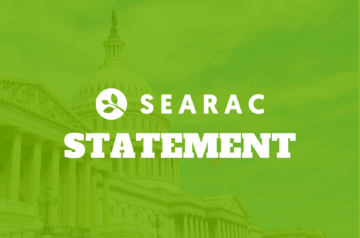Forty-five years ago, during the fall of Saigon, Dr. Carolee Tran escaped Vietnam with her family on board the last American naval ship waiting off Phu-Quoc Island. Then a young child of 8 years old, her last memory of her birthplace was a haunting one: the panicked cries of the masses left behind.
“It was just like heavy rain,” Carolee said in an article for the USC Annenberg Center for Health Journalism, referring to the sounds of despair, “but it was the anguish—the anguish of people, and the fear, and the terror.”
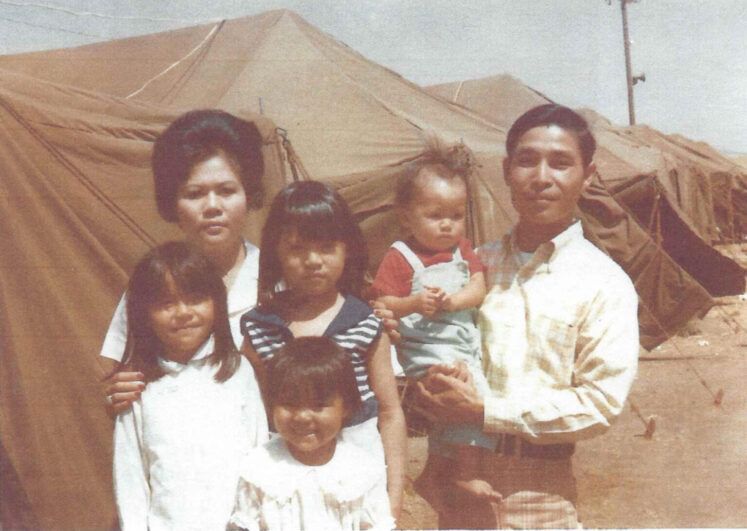
Carolee’s experience as a refugee and the challenges she and her family faced during their time in a Guam refugee camp and later upon resettlement in America, first in Camp Pendleton and later in the Bay Area, led the Davis, CA, resident to pursue a career in clinical psychology. With a deep, lived knowledge of the refugee experience, Carolee provides much-needed mental health support for her SEAA clients during this pandemic.
“Going through my own adversities planted deeply a seed of desire to help others and the conviction that true happiness comes from our ability to decrease the suffering of our brothers and sisters,” Carolee reflected. “It inspires me to be an instrument of hope and healing for others in whatever way possible.”
As the pandemic surged, some communities around the country, including Southeast Asian American communities, were hit harder than others. “We are learning that in certain cities, such as Lowell MA, many Cambodians have been hard hit by Covid-19,” Carolee said, back in May. “My guess is that in time, we will learn more about other areas of the country where Southeast Asians have been disproportionately impacted by the virus.”
“Hate incidents exacerbate the stress and other pre-existing mental health issues for Southeast Asian refugees, who are still dealing with the traumas of their escape out of their home countries and the acculturation challenges of being in America, especially among the older generation.”
Aside from the spread of the virus, Carolee notes that Asian Americans are also fighting an epidemic of racism and xenophobia, emboldened by a president who uses incendiary and dangerous rhetoric. “When our president willfully and repeatedly calls Covid-19 the ‘Chinese or China Virus,’ he’s giving a message that it’s okay to lash out at Asian-looking people,” Carolee said. According to a new Pew Research Center survey, about four-in-ten adults say it is more common for people to express racist views toward Asians since the beginning of the pandemic.
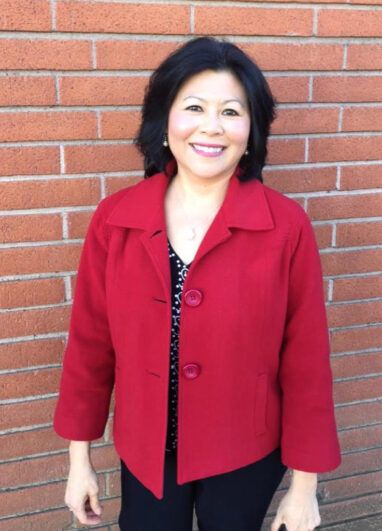
Carolee, herself, experienced a racist attack, an incident she recounted during a recent radio interview. “Just three weeks ago, I was verbally attacked by an older white man at Costco,” she said in May. “He told me I needed to stand 10 feet away from him because I was a ‘disgusting animal-eating Asian and need to go back to where I came from. My experience is not unique. Many of my clients who are Southeast Asian refugees have also reported having similar incidents of verbal abuse happen to them. Some have also been spat on while waiting at bus stops or just walking on the street.”
Hate crimes may also uniquely affect Southeast Asian Americans elders in particular due to the community’s traumatic refugee experience. “Such hate incidents exacerbate the stress and other pre-existing mental health issues (depression, anxiety, PTSD) for Southeast Asian refugees, who are still dealing with the traumas of their escape out of their home countries and the acculturation challenges of being in America, especially among the older generation.’ Carolee said. “Additionally, many Southeast Asian refugees tend to work in low-paying, manual-labor, and service-oriented jobs, which also make them more vulnerable to job loss and financial stress during this difficult economic time.”
While times may be difficult, Carolee fiercely believes in the power of human resilience and connection.
“I believe that people are generally capable, resilient, and have a desire to move towards growth, even in the face of challenging life circumstances,” Carolee said. “These assumptions make me optimistic about the human capacity to heal from traumas and contribute to my belief that most of us can overcome hardships, if we are able to access adequate help and support. These beliefs enable me to remain hopeful, steady, and tenacious in my work with clients.
“I’m constantly in awe of how survivors of trauma manage to survive and thrive under the most difficult of circumstances. My personal experience informs this worldview, as have the experiences of numerous clients I’ve had the privilege of working with through the years.”
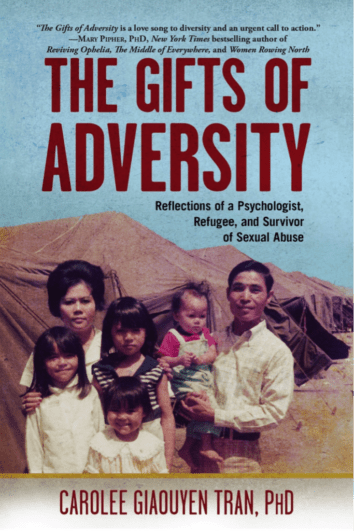
Dr. Carolee Tran is the first Vietnamese woman to earn a PhD in clinical psychology in America. She is author of a memoir entitled The Gifts of Adversity, which describes Carolee’s harrowing escape out of Vietnam with her family during the fall of Saigon and the obstacles they faced in pursuing the American dream.

